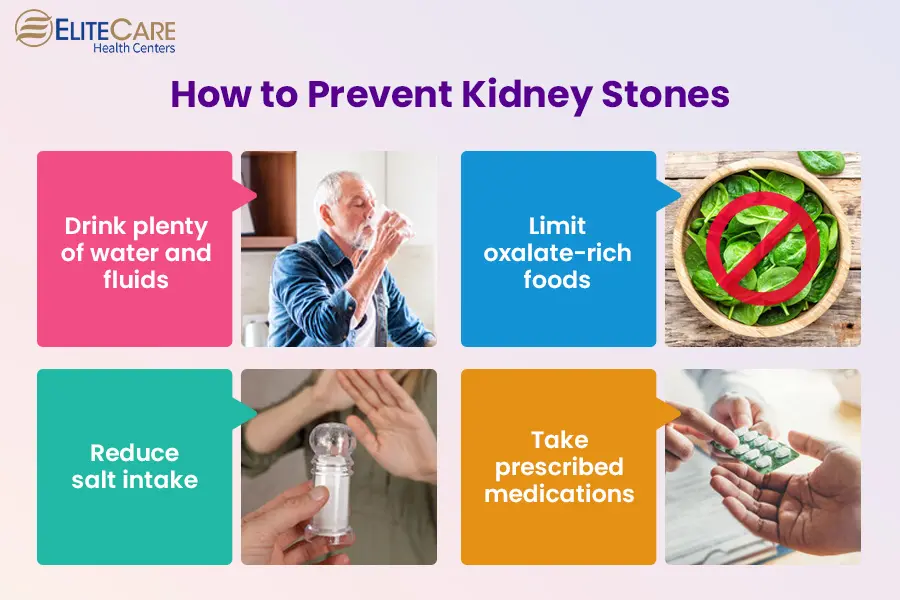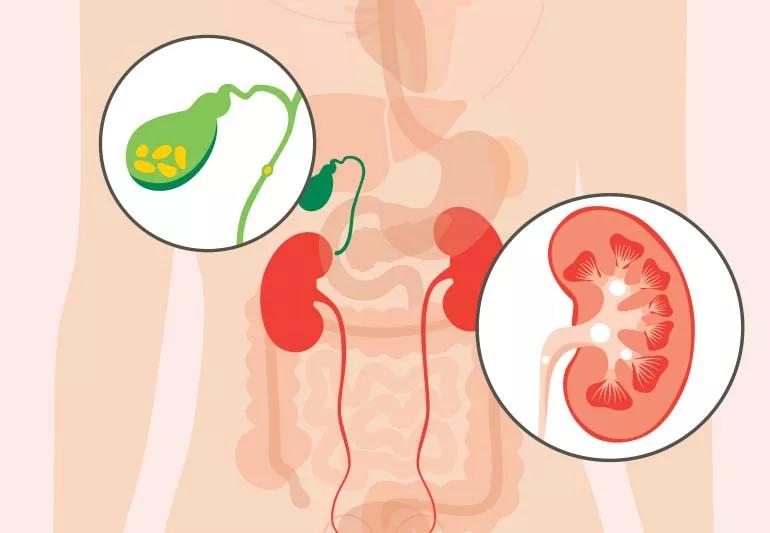Discovering Kidney Stones vs UTI: A Clear Overview of Reasons, Signs And Symptoms, and Solutions
Discovering Kidney Stones vs UTI: A Clear Overview of Reasons, Signs And Symptoms, and Solutions
Blog Article
Exploring the Effects and Causes of Kidney Stones in Comparison to Urinary System Infections: A Comprehensive Overview
The exploration of kidney stones and urinary system tract infections (UTIs) exposes an intricate interplay of signs and underlying reasons that require mindful examination. While both conditions can bring about hematuria, they present unique professional features and develop from various etiological factors. Comprehending the subtleties of each problem is important for reliable medical diagnosis and management. What are the crucial distinctions in their signs and symptoms, and how might these notify treatment approaches? The response to these questions may supply essential understandings into the prevention and care of these typical urological concerns.
Review of Kidney Stones
Kidney rocks, additionally called kidney calculi, kind when particular materials in the pee crystallize and accumulation, leading to the development of hard deposits within the kidneys. These stones can differ in dimension, ranging from a grain of sand to a golf round, and can be composed of numerous products, one of the most usual being calcium oxalate, uric acid, struvite, and cystine. The development of kidney stones is affected by numerous variables, consisting of dietary practices, fluid intake, and hereditary proneness.
Signs of kidney stones may consist of serious pain in the back or side, blood in the urine, nausea or vomiting, and constant peeing, especially as the stone relocates with the urinary system. Medical diagnosis normally includes imaging studies such as ultrasound or CT scans, alongside urinalysis to recognize the stone's structure.
Treatment alternatives differ based on the dimension and sort of stone, along with the intensity of symptoms (Kidney Stones vs UTI). Small rocks may pass normally with boosted fluid consumption, while larger rocks may call for clinical interventions such as lithotripsy or medical removal. Recognizing the pathophysiology and danger factors related to kidney stones is crucial for efficient prevention and monitoring
Summary of Urinary System Tract Infections
Urinary system tract infections (UTIs) are typical microbial infections that influence any part of the urinary system, consisting of the kidneys, ureters, bladder, and urethra. They mostly occur when bacteria, commonly from the stomach tract, enter the urinary system, leading to inflammation and infection.
The occurrence of UTIs is especially greater in women than men, mostly as a result of physiological differences, such as a shorter urethra. Risk elements include sex, specific contraceptive techniques, urinary system retention, and dehydration. The medical diagnosis of UTIs is usually validated through pee examinations, which might disclose the visibility of bacteria, white blood cells, or red blood cells.

Symptoms of Kidney Stones
The pain related to kidney rocks can materialize in different methods, typically leading individuals to seek clinical focus. One of the most common signs and symptoms is serious pain, generally localized in the reduced back or side, which may radiate to the abdominal area or groin. This discomfort, typically referred to as sharp or cramping, can occur instantly and may vary in strength.
Furthermore, individuals might experience hematuria, or blood in the pee, which can range from tiny amounts to noticeable staining. This symptom might be gone along with by changes in urinary system practices, such as increased regularity or urgency, along with discomfort during peeing. Nausea and throwing up are also widespread, typically resulting from the body's response to intense discomfort.
In many cases, people might experience high temperature and cools, specifically if an additional infection creates due to the obstruction triggered by the stones. In general, the mix of severe pain, hematuria, modified urinary system patterns, and gastrointestinal signs can give significant insight right into the existence of kidney rocks, warranting timely clinical analysis and intervention. Understanding these signs is critical for timely diagnosis and efficient administration of the problem.
Signs And Symptoms of Urinary System Tract Infections
Infections within the urinary tract typically provide an array of distinct symptoms that can significantly impact day-to-day live. The most typical signs include a consistent desire to pee, commonly come with by why not try this out a burning experience throughout peeing, referred to as dysuria. People might likewise experience boosted frequency of urination, creating percentages of urine each time.
Various other remarkable signs and symptoms consist of over cast or smelly urine, which may indicate the visibility of microorganisms or pus. In many cases, pee might appear red or pink due to the visibility of blood, a problem referred to as hematuria. Furthermore, individuals may experience pelvic pain or stress, which can even more intensify the feeling of necessity.
Systemic signs may also manifest, such as high temperature, cools, and fatigue, specifically if the infection has actually ascended to the kidneys. It is important to recognize these signs and symptoms early, as without treatment urinary system infections can cause much more extreme difficulties. Kidney Stones vs UTI. Trigger medical interest is recommended when these signs and symptoms are observed, enabling suitable diagnostic examination and treatment to alleviate pain and avoid more health and wellness issues
Reasons of Each Condition
Regularly, kidney stones and urinary tract infections emerge from unique yet sometimes overlapping reasons that can affect people differently. Kidney rocks generally create due to metabolic aspects, dietary options, and hereditary predispositions. Raised levels of check my blog calcium, oxalate, or site uric acid in the pee can bring about stone development. Dehydration, insufficient fluid consumption, and high-sodium diets can intensify these problems, promoting condensation within the urinary system system.

Understanding these distinct reasons is critical for avoidance and therapy. Kidney Stones vs UTI. While way of life adjustments may reduce the risk of kidney rocks, ideal health and timely treatment of urinary system system infections are necessary for minimizing their reoccurrence and associated complications
Verdict
In recap, kidney stones and urinary system infections present distinct signs and symptoms and underlying reasons. Kidney stones are characterized by extreme pain and metabolic factors, while urinary system tract infections primarily entail bacterial infections leading to urinary system seriousness and discomfort. Although both problems can lead to hematuria, their formation systems differ significantly. Comprehending these differences is critical for efficient medical diagnosis and treatment, ultimately enhancing patient end results for those impacted by either problem.
The exploration of kidney rocks and urinary tract infections (UTIs) discloses a complex interaction of signs and symptoms and underlying causes that call for careful assessment.Urinary system tract infections (UTIs) are typical microbial infections that affect any type of component of the urinary system, consisting of the kidneys, ureters, bladder, and urethra.Frequently, kidney stones and urinary system system infections occur from unique yet occasionally overlapping causes that can impact people in different ways.In summary, kidney stones and urinary system system infections existing distinct symptoms and underlying causes. Kidney rocks are identified by extreme pain and metabolic elements, while urinary system system infections largely involve bacterial infections leading to urinary seriousness and pain.
Report this page